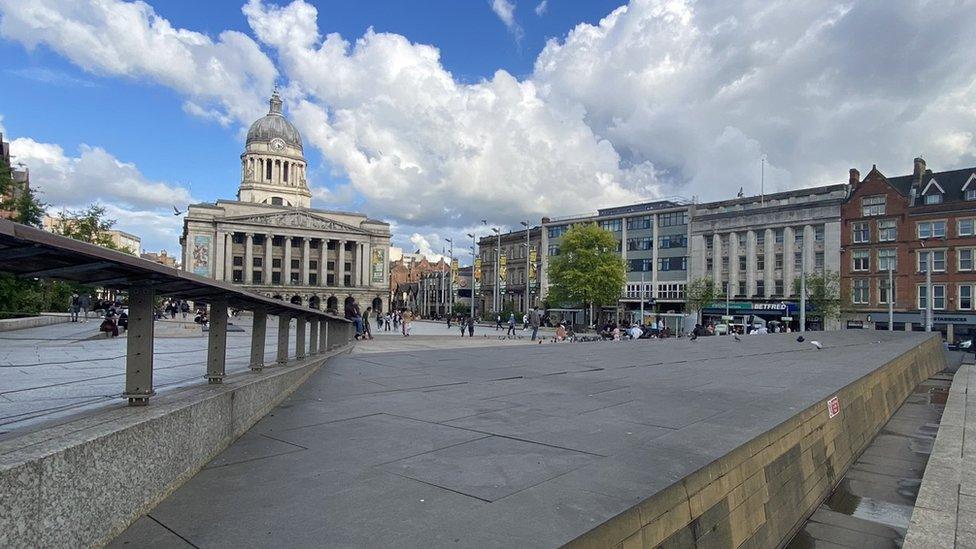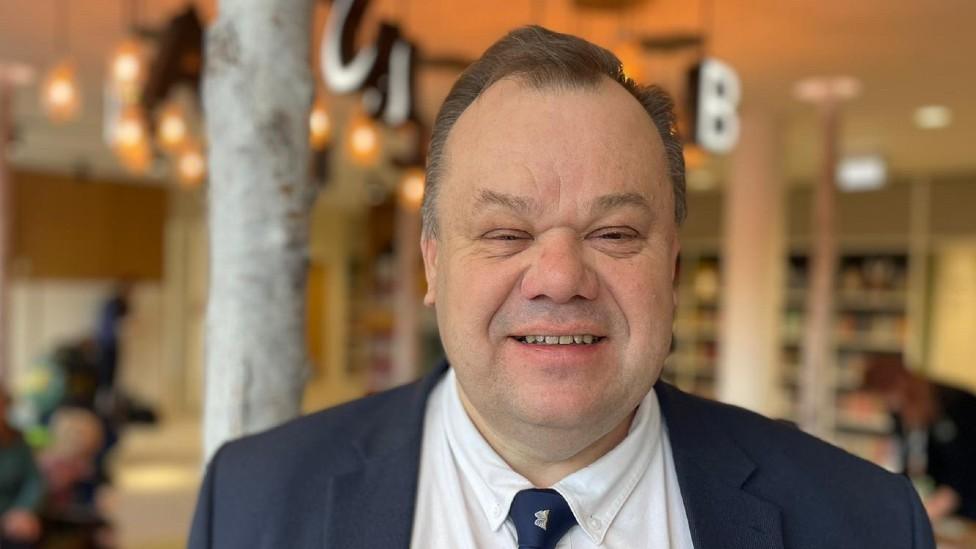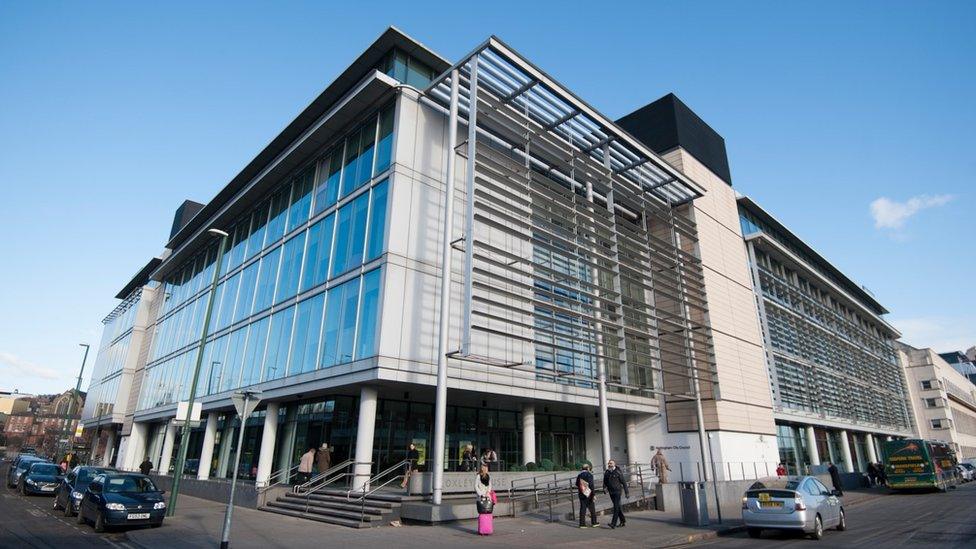'Bankrupt' Nottingham City Council admits past failures hit reserves
- Published
- comments

Nottingham City Council is one of 13 local authorities to issue a section 114 notice since 2018
Bosses of a "bankrupt" city council have admitted past financial failures have left them less able to cope with current pressures.
In a letter to stakeholders, Nottingham City Council said projects such as the failed Robin Hood Energy scheme meant the authority had "less financial resilience".
On Wednesday, the authority declared itself effectively bankrupt.
The letter added it was "inevitable" cuts to services would follow.
The council is one of 13 local authorities to issue a section 114 notice since 2018.
The letter, signed by chief executive Melbourne Barrett and council leader David Mellen, which was shared on LinkedIn, external, said the authority was facing the "most challenging financial environment that anyone can recall".
This, they said, was due to increasing demands for social care and homelessness, as well as inflation that was "not provided for" in previous government funding.
The Labour-run council was set for a £23m overspend in the 2023-24 financial year, before announcing the section 114 notice.
'Support our communities'
The letter said that, while not the cause of the current overspend, historic losses from the failed Robin Hood Energy project had left the authority in a worse position.
In 2021, the council also issued a section 114 notice after £16m from the Housing Revenue Account - meant for things such as repairs - was unlawfully spent from 2014-15 to 2019-20.
This has now cost the council more than £50m, due to inflation.
The senior officials said both failures left the council with less reserves to "smooth the current financial pressures".
"It has never been more important for us to work together as one city and support our communities," the letter read.

David Mellen said the council's declaration of effective bankruptcy pointed to a worsening national crisis
The city council said it received £100m less every year from government following the cutting down of the revenue support grant.
Speaking to the Local Democracy Reporting Service, Mr Mellen said: "This is about adult social care overspending, this is about greater demand for children in care and placements being made more expensive.
"This is because many more people are presenting to us as homeless and we have a duty to house them, and it is because the rate of inflation over the last year has sky-rocketed."
"This is a national thing where local government is being starved of resources."
Speaking to the BBC, Mr Mellen added the council would consider selling off assets, potentially at an auction in February 2024, to raise funds.
A meeting of all councillors will take place within 21 days to consider the section 114 report.
Until then, spending controls already in place will be further tightened.
The government's Department for Levelling Up, Housing and Communities (DLUHC), which appointed an improvement board to oversee the council following its financial woes, said it was considering if any further intervention was required.

Follow BBC East Midlands on Facebook, external, on X, external, or on Instagram, external. Send your story ideas to eastmidsnews@bbc.co.uk, external.
Related topics
- Published29 November 2023
